- Home
- Patricia McLinn
Death on Covert Circle Page 7
Death on Covert Circle Read online
Page 7
“Yeah, yeah.” He stepped back. “Move along now. You can’t stay here.”
“Oh! Of course. Yes, Officer. Right away, Officer. I’m so sorry, Officer.”
“It’s okay, ma’am. Just… Go on, now.”
“Yes, yes.” She raised her window, then fumbled with the keys.
It was a good thing he didn’t bend down to look at me again, because controlling my face was beyond me. As she backed away from the building in imitation of an overly cautious driver about to make a turn, he peered in the windshield. I dropped my head, as if in shame over my churlishness driving her to such despair.
“You constantly amaze me, Clara,” I said from that position.
“Haven’t told you I was in high school plays, huh?” She cranked the wheel with exaggerated motions.
“The star, I’m sure.”
“Nah. Character parts.”
I laughed. “But you’re going the wrong direction.”
“A job worth doing is a job worth doing well,” she said primly, as she completed the turn toward the end of the building we had yet to see.
“Fine with me. You know, you used to talk a lot more like that when we first met than you do now.”
She looked straight ahead. “You intimidated me. Felt more comfortable behind a bit of a part. Besides, there was that business with Gracie and the rescue group.”
“We’ve put that behind us.”
“I hope so. Now. But when I was still keeping stuff from you…” Reaching the end of the building, she turned right along its west side. “Ahhhh.”
Not only did I appreciate any change of subject from keeping things from each other, but I shared her satisfaction.
There, in the side of the building, was a human-sized door with a human-sized step down to the ground.
Guesstimating the location of the doors separating the produce department from the back room, it appeared to be quite convenient, too.
“Pull over, Clara.”
“Be quick before the deputy comes back. I don’t know if a second act—”
I exited her SUV, jogged to the door, and tugged on it.
“Locked,” I reported two seconds later, back in the vehicle as Clara rolled forward.
But slow enough to give the snail its first victory ever.
“You can go now,” I told her.
“Our friend the deputy’s watching around the building. If I go any faster, there’s no excuse for us not to be farther along. You think that door was locked from the inside?”
“Not necessarily. It probably self-locks when it closes. Too bad we didn’t see it from inside.”
“After sailing past a dead body,” she noted with distaste.
“Picky, picky. It’s reasonable to think he waited only a few minutes, then took off through that door for parts unknown.”
“Parts unknown for a guy unknown,” she grumbled.
I wondered if he’d been as unknown to Jacqueline as the rest of us.
We’d reached the corner to turn along the front of the building, and she embarked on another elaborately cautious turn, stopping completely to lower her window, stick her arm out and wave over the top of the SUV toward the still-watching deputy.
“Curtain call?” I asked.
“An encore in hopes of allaying any final doubts. He didn’t take our names. Maybe he won’t tell Hensen.”
“Don’t count on it.”
CHAPTER FOURTEEN
We discussed the murder while we picked up a fast-food lunch eaten in the parking lot so we wouldn’t be overheard. And continued the topic until Clara pulled in the driveway of my two-story red brick Colonial style house and turned off her SUV’s engine.
She’d left her dog, LuLu, here with my Gracie in a sort of playdate.
The overseer of the playdate was Teague O’Donnell, since he brought his dog, Murphy, along while he was working for me and the three dogs were the best of friends.
Yes, the same Teague O’Donnell who was rebuilding the retaining wall in my back yard. Also the ex-cop and ex-detective who thought Clara and I — all civilians, but especially Clara and I — should leave investigating to the sheriff’s department.
“You want me to come with to tell Teague what happened?” Clara asked.
Have I mentioned she’s my favorite person in the world?
“Yes. Please.”
She grinned at me.
After greeting all three dogs, who met us at the gate, we headed down the fenced backyard, which sloped toward a creek at the very back of the property. Previous owners had fenced the upper — and flatter — part of the yard. Across the back, the fence topped a retaining wall. From the retaining wall to the creek was a slope.
North Bend County is snugged within a northern pointing curve of the Ohio River, thus North Bend. Pretty wild of those early namers, eh?
Most of the county sits well above the river. Creeks do their best to get down to river level so they can join up with it. They’ve been working on that long enough to chew down the land along their banks. This makes for a lot of up and down topography.
The founders of Haines Tavern weren’t dummies.
They picked a relatively flat area for the original town. One with a spring in the southwest corner of what everyone unblinkingly called Town Square despite its rectangularity.
“Nothing accidental about it,” Urban Parham, unofficial Haines Tavern and North Bend County historian, had told me about the square’s siting. “The spring served the Haineses’ original building on the west side — the post office now — and then the current Tavern on the south side. Better yet, it meant folks congregating at the courthouse — the Old Old Courthouse—” That distinguished it from three other courthouses in the same large block. “—had to walk across the square to get spring water. As long as they’d walked that far, a lot went a bit farther to the Tavern and had something worthwhile to drink.”
“An early form of geography as marketing?” I’d asked. “Grocery stores do that, putting stuff you buy most in the farthest corner so you’ll walk past lots of other stuff and be enticed.”
“Indeed. Note the end of the square farthest from the spring was left to the churches. Presumably the holy could stand a longer walk to water.”
He bowed his head in gentle appreciation of my chuckle.
Haines Tavern’s growth had been slow until the past fifty years. My house, a post-World War II build, was relatively close to the center of town. That meant my yard was also relatively flat, unlike newer subdivisions, such as where Clara and Ned lived.
Still, the slope meant only Teague’s head and his shirtless shoulders were visible through the fence as he dug on the downslope side of the wall.
“Maybe we can work the murder into the conversation gradually. Natural-like,” Clara said.
I side-eyed her.
“Okay. I guess not. Do you want to start or do you want me to?”
“I’ll start. Then you pitch in.”
Either spotting us or hearing us, Teague settled a spadeful of soil, then leaned crossed forearms on the top of the end of the handle and said, “Hey. How’d the meeting go?”
“Fine.”
The word came out short and not very convincing. But did the man have to have his shirt off? I swear even his elbows had muscles. And he was slightly sweaty. Not enough to bring up associations with being smelly. Just enough to bring up associations with … other things.
As his eyebrows started up, I said in the same tone, “The CEO of the Jolly Roger grocery store chain died here today.”
“Not gradual, not natural,” Clara murmured.
Teague asked, “Here where?”
“At the Roger.”
“The grocery store off the highway?”
“Yeah.”
Clara took over, clearly feeling a need for more explanation. “The Roger’s on Covert Circle, the road that loops off the highway, down past the dog park. The CEO — his name was Rod Birchall. I guess it’s still his name. It’s
not like you lose your name after you’re dead, do you? Anyway, he was here for a surprise visit — inspection — and he was murdered.”
Teague straightened away from the shovel handle and turned to looked at her more directly.
“Murdered?” He retraced his turn and looked at me. “And you two happened to be there.”
“That’s right. Pure coincidence. Because for it not to be a coincidence we would have had to be involved in the murder.” I glared at him until he broke the look. “Which we were not. We were buying orange juice. Ned likes orange juice for breakfast and they were all out. Clara didn’t want to deprive him of his orange juice.”
“Unbelievable,” he muttered.
“Actually, it’s not unbelievable at all. Sheila was telling me about a book about oranges and it’s not only in the United States that people drink orange juice for breakfast, so Ned’s not a rarity. Plus, in other places, people drink it all day and others use oranges for other things, too. Who wrote that book, Sheila?”
“John McPhee.”
“John McPhee,” Clara told Teague.
He put down the shovel. “Tell me.”
“About the book?”
“About the death and possible murder.”
“Let’s get comfortable in the house,” Clara proposed. “We’ll get lemonade, get out of the sun, and Sheila and I can stow the groceries in her fridge.”
And one of us would hope Teague put his shirt back on.
CHAPTER FIFTEEN
“…and then Sheila told Deputy Hensen the information that could blow open the entire investigation.”
“Did she now?”
“She did. But to understand it, first you have to know the back room of the Roger is all connected. It’s from one side of the building to the other, though they do have special areas for freezers and chilled areas, plus different unloading areas. We drove around back to look.” She huffed slightly. “Didn’t get to see much before they shooed us away.”
He closed his eyes for significantly longer than a blink. More like a moment of despair.
I had no sympathy for the man. In general, because he was such a stickler about investigating being the sole preserve of the sheriff’s department. In particular, because his shirt remained at the worksite.
“You could have left,” he said.
“Of course we couldn’t leave. We are witnesses. It’s our duty to tell the sheriff’s department everything we saw and heard. What they’ll listen to, anyway.”
At that last sentence, his eyes narrowed. Clara looked back with limpid innocence.
“You know,” he said slowly, “most witnesses tell what they observed and then let law enforcement handle the rest.”
“Actually, I understand law enforcement can have a very difficult time getting witnesses to cooperate at all. Too many people don’t want to get involved,” I said.
His face indicated that might be his preference.
Too bad, rose to my lips.
But Clara was undaunted and unirked. “We would never do that. Even if they don’t want our help. So I say we solve it without them.”
“In fairness, Deputy Hensen did listen to what we said about whom we saw in the store.”
“But didn’t want to be bothered figuring out the timing, which could be vital especially with all the cameras not working, so time stamps are missing. And then he kicked us out.”
“An excellent point, Clara. The timing is interesting.”
“See,” she said in triumph to Teague. “We’re already making progress. Even though we gave them a huge advantage by telling Deputy Hensen everything we knew—”
“Not a competition.
“—and that’s where the back room being connected from one side of the store to the other comes in. It opens the field of suspects. Sheila pointed it out and—”
“Hensen already knew,” I said.
“He did? How do you know?”
“His expression when Jacqueline—”
“That’s the assistant store manager, Jacqueline Yancik,” Clara reminded Teague.
“—was talking about everybody staying put outside the doors, like that made it a locked room mystery or something. He clearly knew it wasn’t.”
“Not to mention they didn’t stay put,” Clara told Teague. “They said they did, but Sheila and I saw Jacqueline and Foster Utton and the guy in jeans and Isaac the driver out in the store at the time they said they were waiting outside the door. Well, except Isaac. But it’s the same difference. They were not telling the truth.”
“Is that how Sheila blew the case wide open?” Teague asked.
I could practically hear him thinking experienced law enforcement would spot the lies quickly enough without amateur contributions. Maybe. But we’d saved him time.
“No,” said Clara, who either didn’t hear Teague’s thoughts or loftily overlooked them. “That was when she told Hensen about someone else who’d argued with Rod Birchall. A woman. In fact, she was the one who argued the most with him and it was real emotional for her. You could tell. And it turns out nobody knew who she was. And she had a motive, because she accused Birchall of misusing his power as CEO of Jolly Roger and nearly killing her daughter because he’d changed the Roger’s policy on food labeling, so it no longer listed ingredients this mother said could kill her daughter. And then, guess what Birchall died of?”
Teague refused to play his part. “Autopsy results couldn’t possibly have come back yet, so you can’t know what killed him.”
“No, but sometimes it’s obvious. Like a gun shot. Or a knife wound.”
“Sometimes the obvious is wrong.”
“Sometimes it’s right.”
He conceded with a sideways tilt of his head. “What was the obvious cause of death this time, Clara?”
“A food allergy.”
This time skepticism triggered a new head tilt. “How can you know?”
“Foster Utton said so — he’s the guy we thought was the CEO’s assistant until Jacqueline told us he’s sort of the heir and he’s going to be CEO. Anyway, he said Rod Birchall was allergic to sesame.”
“Has that been confirmed?”
Her eyes glinted. “That woman who disappeared knew about it, too.” She said to me, “Remember what she said about how he of all people should understand and want the labeling to be complete?”
“I remember.”
Triumphant, she faced Teague again. “He was allergic to sesame and guess what was in the snack he ate?”
Teague adjusted his gaze on Clara. He was legally — though not totally, he emphasized — blind in one eye and he did that sometimes, as if trying to dial in focus. Up to this point, I’d noticed him doing it with his carpentry work and me. It was a relief to see him do it to Clara.
“Sesame,” she said with more triumph, even though he hadn’t asked her.
“That was on the label?”
“No. That’s the entire point. It wasn’t on the label.”
“Then how do you know—?”
“I looked at the tray and I could see seeds on it. Poppy for sure, probably sesame, too.”
“Looked, but didn’t taste. And you can’t confirm the one he ate had them.”
She rolled her eyes. “Hey, you were the one who told Deputy Hensen that Sheila and I have good instincts for this, didn’t you?”
“I did.” From his tone, Hensen might not receive such confidences in the future.
Wisely, Clara didn’t rub it in. “And that guy — Foster Utton, worked with Birchall, so he should know — said Birchall was allergic and that’s what probably killed him.”
I tried to catch her gaze, but she was carefully avoiding eye contact with me.
“People don’t always know as much as they think they do,” Teague said. “But even if he’s right, it could still be an accident. What would make this murder?”
“We all heard when he swore and a muffled sound, which might have been him falling behind the boxes. Nobody went in to help hi
m.”
“Depraved indifference,” he said.
“Or a reasonable reaction to his behavior,” I muttered.
He ignored my comment. “For murder, you’d have to prove someone knew he had the allergy, knew the likely outcome, knew the ingredient he was allergic to was in what he ate, and got him to eat it, which isn’t going to work for your theory of murder, since your witnesses — yourselves — say he picked up the food himself.”
Something tickled at the back of my mind.
“We can get around that,” Clara said. “Can’t we, Sheila?”
“Hah.” Teague’s abbreviated snort doubted it without descending to outright rudeness.
Belatedly, I bolstered her statement. “Sure, we can. And we’re going to. In fact, you should get back to work on the retaining wall and we should get started.”
There went the last of my time to write, since after the dog park meeting we planned to go directly to our evening yoga class. Which was worse? Failing to write? Or failing to investigate a murder?
“Get started? Is that your way of saying you’re going to the dog park to talk to people?” Teague asked, amused for sure, possibly also fatalistic.
“Of course we are.” Clara checked her phone for the time. “Not right this second, though. It’s been scheduled for five-thirty for more than a week.”
“Scheduled?” Sometimes Teague was hard to read. Not this time. He was wondering how our trip to the dog park to get background about the murder could have been scheduled before the murder.
Clara sighed at him. “You didn’t read the flyer I gave you, did you?”
He shot a hopeful look at me. I grinned. I wasn’t saving him. He was on his own.
“Uh, I haven’t had time. Not with Sheila being such a hard taskmaster.”
“Hah. I happen to know she delayed the work on the retaining wall so you could take the job building the Murchisons’ entertainment center.”
“And I appreciated it. It was a lot more comfortable during that hot spell being in their air-conditioned basement than out digging on the retaining wall. Though it’s still plenty warm. So I appreciate this, too.” He lifted his lemonade glass. “Heard it’s supposed to get even warmer—”

_preview.jpg) Almost a Bride (Wyoming Wildflowers Book 1)
Almost a Bride (Wyoming Wildflowers Book 1)_preview.jpg) Prelude to a Wedding (The Wedding Series Book 1)
Prelude to a Wedding (The Wedding Series Book 1)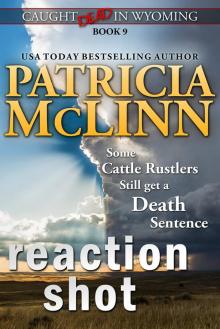 Reaction Shot (Caught Dead in Wyoming, Book 9)
Reaction Shot (Caught Dead in Wyoming, Book 9)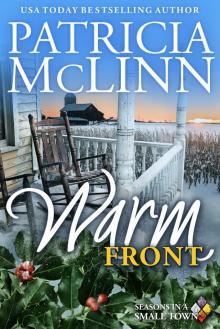 Warm Front
Warm Front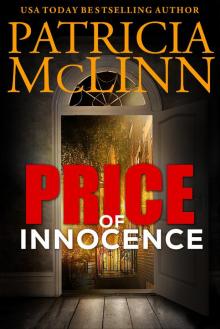 Price of Innocence
Price of Innocence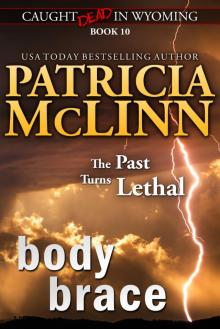 Body Brace (Caught Dead in Wyoming, Book 10)
Body Brace (Caught Dead in Wyoming, Book 10)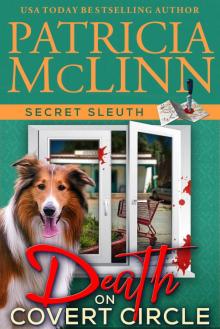 Death on Covert Circle
Death on Covert Circle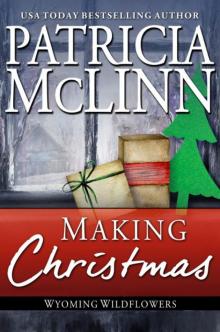 Making Christmas
Making Christmas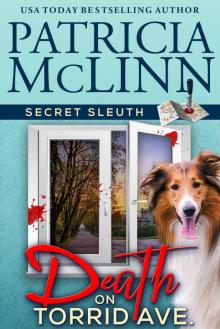 Death on Torrid Ave.
Death on Torrid Ave.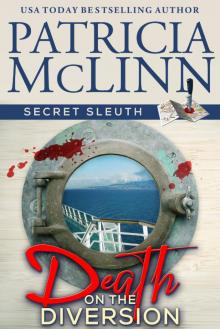 Death on the Diversion
Death on the Diversion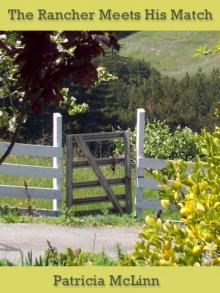 The Rancher Meets His Match
The Rancher Meets His Match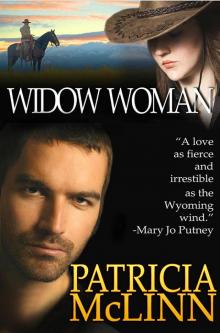 Widow Woman
Widow Woman The Runaway Bride
The Runaway Bride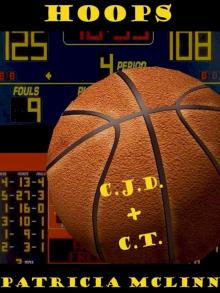 Hoops
Hoops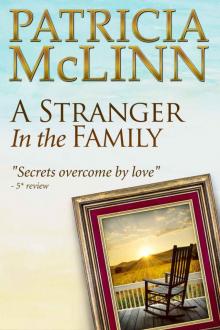 A Stranger in the Family (Book 1, Bardville, Wyoming Trilogy)
A Stranger in the Family (Book 1, Bardville, Wyoming Trilogy)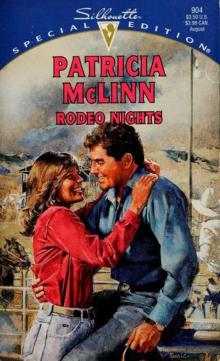 Rodeo Nights
Rodeo Nights Wedding Series Boxed Set (3 Books in 1) (The Wedding Series)
Wedding Series Boxed Set (3 Books in 1) (The Wedding Series)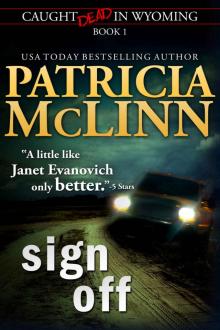 Sign Off (Caught Dead in Wyoming, Book 1)
Sign Off (Caught Dead in Wyoming, Book 1)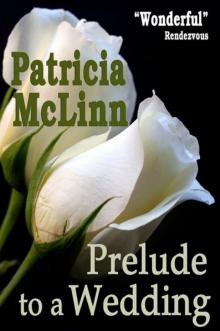 Prelude to a Wedding
Prelude to a Wedding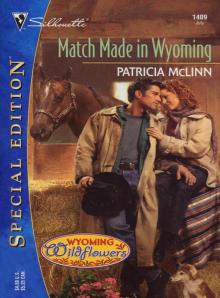 MATCH MADE IN WYOMING
MATCH MADE IN WYOMING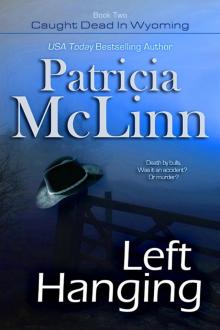 Left Hanging
Left Hanging What Are Friends For?
What Are Friends For?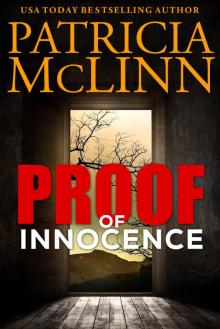 Proof of Innocence
Proof of Innocence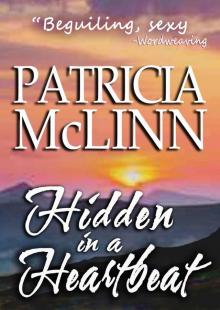 Hidden in a Heartbeat (A Place Called Home, Book 3)
Hidden in a Heartbeat (A Place Called Home, Book 3)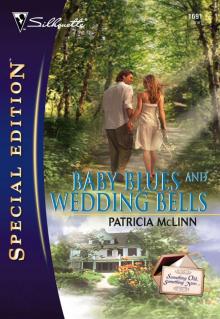 Baby Blues and Wedding Bells
Baby Blues and Wedding Bells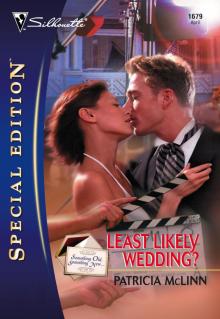 Least Likely Wedding?
Least Likely Wedding? Heart Stealers
Heart Stealers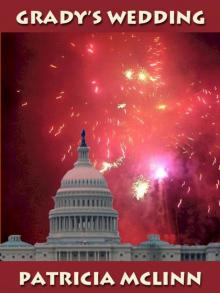 Grady's Wedding
Grady's Wedding Right Brother
Right Brother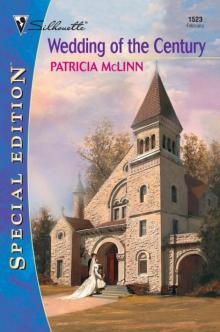 Wedding of the Century
Wedding of the Century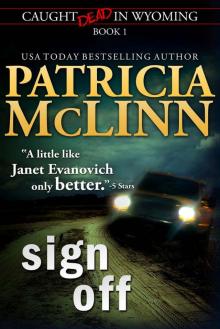 Sign Off
Sign Off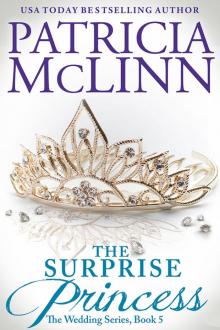 The Surprise Princess
The Surprise Princess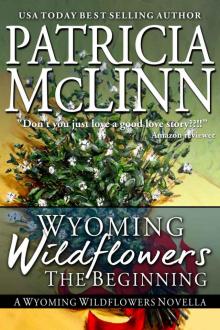 Wyoming Wildflowers: The Beginning
Wyoming Wildflowers: The Beginning